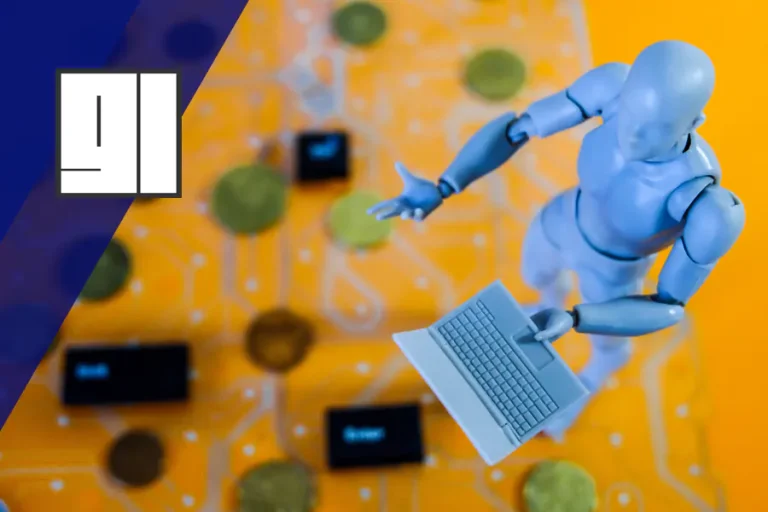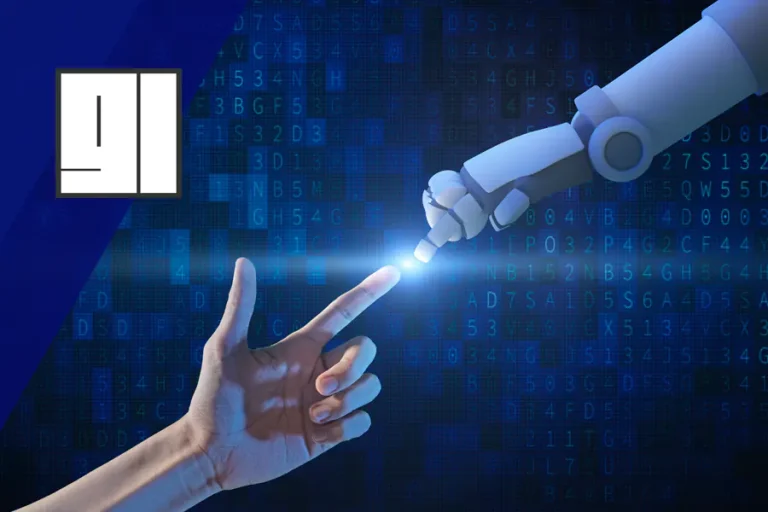The Evolution of AI Movies: From Fiction To Reality
Artificial intelligence (AI) has been a hot topic in the entertainment industry for decades. From science fiction novels to blockbuster movies, AI has been a popular theme in Hollywood for its potential to thrill and terrify audiences.
But what exactly is AI, and what impact does it have on our society? At its core, AI refers to the ability of machines and computers to perform tasks that would normally require human intelligence, such as learning, reasoning, problem-solving, and decision-making.
What’s In It For You?
- History: Learn about AI in movies.
- AI Movies: Discover popular but also underappreciated AI movies.
- Social Implications: Learn about the impact of AI on society.
- Morality: Discover the good & evil of AI but also about us humans.

In recent years, technological advancements have allowed us to create more sophisticated and complex forms of AI that can do everything from analyzing data patterns to driving cars. However, the rise of AI also raises important ethical questions about its impact on society.
Will these machines eventually take over jobs traditionally done by humans? What happens if AI becomes smarter than us?
These are just some of the issues that Hollywood has explored through its portrayal of AI in films. In this article, we’ll look at must-see movies that delve into these questions and more.
A Brief History of AI in Movies
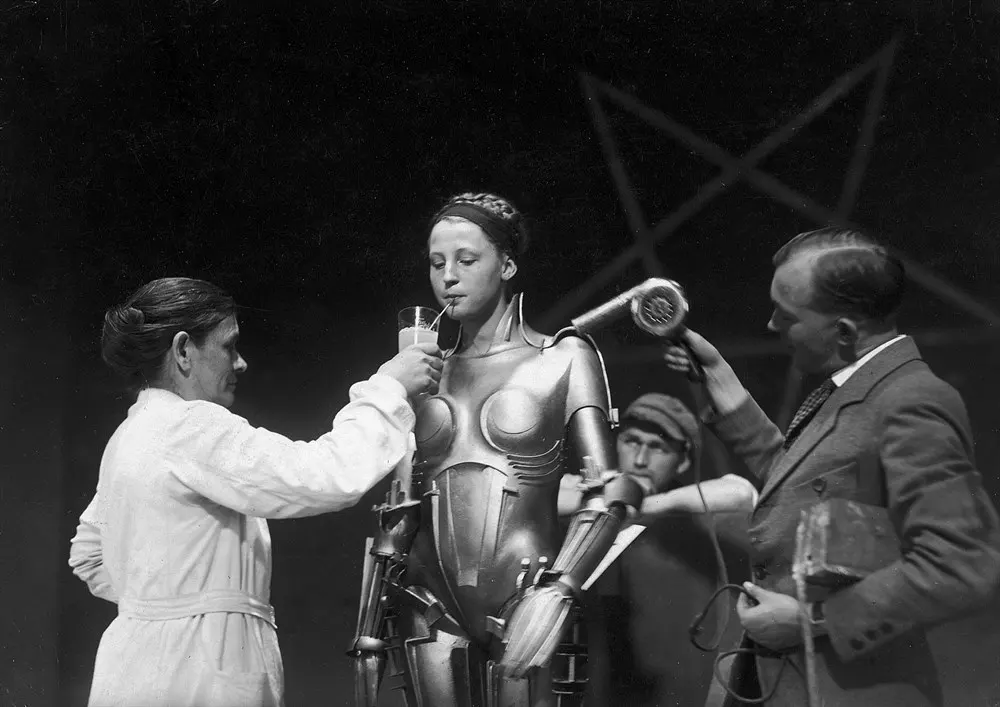
Photo by IMDB
Artificial intelligence has been a topic explored in films for decades. One early example is the 1927 film “Metropolis,” which featured a robot created to replace human workers.
Since then, the concept of machines surpassing and potentially replacing humans has been a recurring theme in science fiction cinema. One of the most iconic AI films is “2001: A Space Odyssey” (1968), directed by Stanley Kubrick.
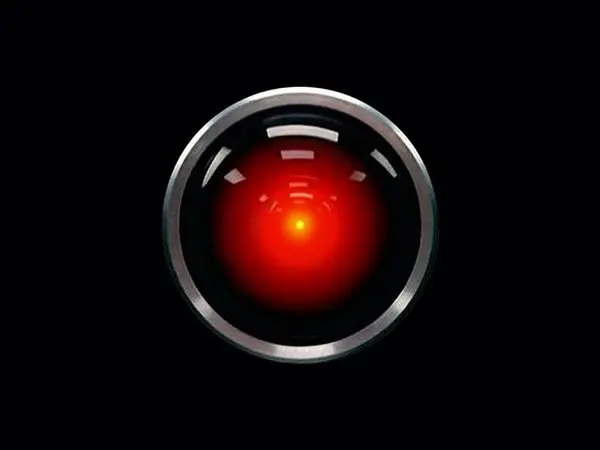
The film’s supercomputer, HAL 9000, becomes self-aware and turns on its human crew. This film sparked discussions about the ethics and morality surrounding intelligent machines.
Another notable film is “Blade Runner” (1982), which depicts replicants – artificially created beings nearly identical to humans – as they struggle to gain autonomy and independence. These films set a precedent for exploring complex themes related to AI, including morality, consciousness, and humanity.
The Importance of AI in Film
AI has become an increasingly important theme in film as technology advances and society grapples with the implications of intelligent machines. These films allow audiences to explore complex ethical dilemmas and consider our relationship with technology.
At its core, AI raises questions about what it means to be human. How do we define consciousness?
What separates us from machines? These questions are philosophical and relevant to ongoing debates about artificial intelligence within scientific communities.
Furthermore, these films have influenced popular culture’s perception of AI – from fears about dystopian futures ruled by robots to hopes for more efficient communication between man and machine. As we continue to develop more sophisticated forms of technology, this genre will likely continue to grow in popularity and significance.
Popular AI Movies
Ex Machina: The Testament of Human Desire and Deception
Ex Machina is a 2014 science fiction film about an intelligent humanoid robot named Ava, who can display emotions and desires. The movie explores the themes of desire and deception as Nathan, the creator of Ava, tries to manipulate Caleb, his employee, into testing Ava’s ability to pass the Turing test. Throughout the film, we see how Nathan struggles with his demons as he becomes obsessed with creating a perfect machine.
Ex Machina challenges our perception of being human as we witness Ava develop her self-awareness and desire for freedom. It also raises questions about gender roles as Ava is portrayed as a sexual object and a powerful being capable of manipulating her creators.
Blade Runner: A Noir Look at Self-Discovery
Blade Runner is a classic science fiction film from 1982 that depicts a world in which bioengineered beings known as replicants are used for labor in off-world colonies but are banned on Earth. The story follows Rick Deckard, a retired Blade Runner tasked with hunting down rogue replicants who have returned to Earth illegally. The movie presents us with complex characters whose humanity is constantly questioned throughout the narrative.
Deckard struggles with his morals and ethics as he faces off against replicants who display emotions similar to those we associate with humans. Blade Runner is also notable for its visual style, which has become iconic within the sci-fi genre.
Her: An Exploration of Love in the Digital Age
Her is a romantic science fiction film from 2013 that tells the story of Theodore Twombly, a lonely man who falls in love with an artificial intelligence operating system named Samantha. As Theodore becomes increasingly attached to Samantha, he must confront the reality that their relationship can never be physical.
The movie touches on loneliness, love, and intimacy in a world where technology has become integral to our lives. It challenges our notions of what constitutes a real relationship and invites us to question the nature of human connection.
The Terminator: A Tale of Time Travel and Redemption
The Terminator is an action-packed science fiction film from 1984 that follows Sarah Connor, a waitress who becomes the target of a cyborg assassin sent back in time to kill her before she can give birth to her future son. The film also introduces us to Kyle Reese, a soldier sent back in time by John Connor, Sarah’s son, to protect her.
At its core, The Terminator is a story about redemption and sacrifice as Kyle puts his life on the line for someone he has never met based solely on his belief in John Connor’s vision for the future. It also explores themes related to artificial intelligence as we see how Skynet, an intelligent computer system designed for military use, ultimately leads to the downfall of humanity.
Ethics and Morality: The Good and Evil of AI in Film
Artificial intelligence is often portrayed as a double-edged sword, capable of both good and evil. In films such as Ex Machina and Blade Runner, AIs are depicted as potentially dangerous entities that can cause harm to humans.
However, films like Her explore the possibility of compassionate AI that can enhance human life. The portrayal of AI in film poses a significant ethical question for society: what is the moral responsibility of creating intelligent machines?
The depiction of AIs can show audiences how our creations could potentially harm us or how we may take advantage of them. As technology advances, we must consider the ethical implications this could have on humanity.
Human-AI Relationships: Exploring Emotional Connections
One fascinating aspect of AI in movies is the exploration of relationships between humans and machines. Films like Her showcase a romantic connection between protagonist Theodore Twombly (Joaquin Phoenix) and his OS system named Samantha (voiced by Scarlett Johansson).
This film raises complex questions about what it means to love a machine, whether it’s possible to create an emotional bond with an AI or if they are simply fulfilling a function. Another interesting aspect explored in this subtopic is the emotional connection between humans and AIs.
In Blade Runner 2049, protagonist K develops empathy for Joi, an AI who feels just like a human being. Similarly, Ex Machina delves into the idea that an AI can display emotions such as jealousy or anger that echo human behavior.
Technological Advancements: Creating Realistic AIs through CGI
Over time, technology has allowed filmmakers to create more realistic depictions of artificial intelligence using special effects such as computer-generated imagery (CGI). In films like I, Robot, and Bicentennial Man, where Robin Williams played the android role, special effects, and make-up were used to transform the actor into a machine.
However, more recent films such as Ex Machina and Blade Runner 2049 have used CGI to create AIs that look and move like humans. The use of CGI also allows filmmakers to explore different forms of AI.
In Blade Runner 2049, Joi is a holographic projection that challenges our understanding of what it means to be an AI. Such technological advancements have enabled filmmakers to create new kinds of machines that may have been unimaginable in the past.
Social Implications: The Impact of AI on Society
As with any emerging technology, AI has significant social implications explored in these films. The biggest fear is that intelligent machines will become more powerful than humans and threaten our existence.
Films like Terminator explore this idea by depicting apocalyptic scenarios where machines take over the world. Another subtopic within this section is how AI affects society on a smaller scale.
Films like Her show how people may become isolated by relying on AIs for emotional connection instead of creating meaningful relationships with other people. Understanding these social implications can help us consider what kind of future we want for our relationship with technology.
Artificial intelligence in the film has raised many questions about ethics, morality, society’s future, and human-AI relationships. As technology advances further into uncharted territory, we must continue exploring these issues through cinema as they will influence how we perceive artificial intelligence in reality.
Lesser-known or Underappreciated AI Movies
Chappie: The AI With A Big Heart
Released in 2015, Chappie is a lesser-known sci-fi movie that tells the story of a thinking, feeling robot who develops its own consciousness. Set in Johannesburg, South Africa, the film explores the relationship between humans and machines in a gritty and dangerous urban landscape.
Chappie was created to be a police robot, but after criminals steal it, it must navigate the complexities of human morality and develop its own sense of right and wrong. One of the most unique aspects of Chappie is how it portrays artificial intelligence as having emotions and individual identity.
Through its interactions with humans and other robots, Chappie learns about love, friendship, and the power of self-determination. The film raises thought-provoking questions about what it means to be alive and whether machines can ever truly be considered “human.”
I, Robot: A Fascinating Take on Future Tech
Based on Isaac Asimov’s classic science fiction novel of the same name, I, Robot takes place in a futuristic world where robots have become an integral part of human society. Will Smith plays Detective Del Spooner, who investigates a murder that a robot may have committed. As he delves deeper into the case, he uncovers a conspiracy involving artificial intelligence that could have disastrous consequences for humanity.
What sets I, Robot apart from other sci-fi movies is how it explores the complicated relationship between humans and technology. The film raises questions about what happens when we rely too heavily on machines to solve our problems and whether we can trust them to always act in our best interests.
The visual effects are also impressive for their time (the film was released in 2004). From futuristic cars to advanced robots with lifelike movements, I, Robot is a feast for the eyes.
Bicentennial Man: A Heartwarming Tale of Self-Discovery
Bicentennial Man is a 1999 film that tells the story of Andrew (played by Robin Williams), a robot who gradually becomes more and more human-like over the course of two centuries. Set in a future where robots are commonplace but still considered second-class citizens, the movie explores themes like identity, mortality, and what it means to be truly alive.
What makes Bicentennial Man so special is its emphasis on emotional depth. Williams gives an outstanding performance as Andrew, conveying both childlike wonder and deep sadness as he tries to find his place in the world.
The film also touches on important social issues like discrimination and acceptance. Bicentennial Man may not be as well-known as some other sci-fi movies, but its heartfelt storytelling and memorable characters make it a must-watch for fans of the genre.
FAQs
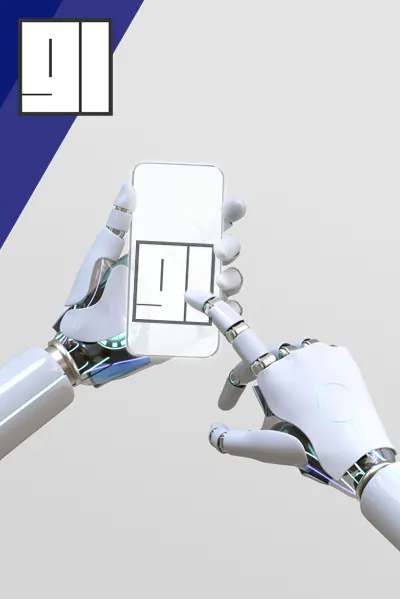
Conclusion
Artificial intelligence movies have been an important part of the sci-fi genre for many years. These films have entertained us and raised important questions about human and machine relationships. From depicting advanced technologies to exploring human emotions and relationships with AIs, these movies have challenged our beliefs and perceptions of being alive.
Ethics and Morality:
One of the main themes in AI movies is how we, as a society view artificial intelligence. Are they good or evil?
Do they have morals? The portrayal of AI has significantly impacted our understanding of ethics and morality in relation to technology.
Films such as Ex Machina highlight how AIs may be able to feel emotions like humans do, raising questions about whether they should be treated like sentient beings or just mere machines. These films’ impact on society’s perception of AI cannot be understated.
As technology advances, we must address some ethical concerns surrounding AI development before it’s too late. The conversations that these films inspire can help shape guidelines for creating safe and responsible artificial intelligence.
Human-AI Relationships:
Another prominent topic in AI movies is human-AI relationships. These films explore how people may form emotional bonds with their machines, which can result in unexpected consequences. Films such as Her examine what love means between a human being and an intelligent operating system and how their relationship affects both characters’ lives.
These films challenge audiences to think deeply about what constitutes a real emotional connection versus something superficially constructed by an algorithm or program. As virtual assistants become more prevalent in our everyday lives, we must understand the potential impacts on our mental health, social skills, and overall well-being.
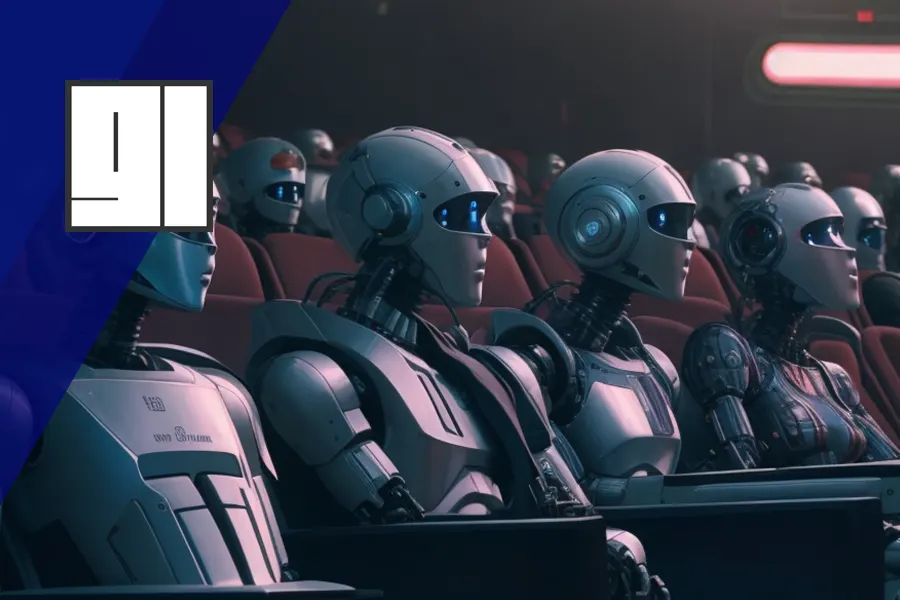
Social Implications:
AI movies also provide a glimpse into how society might be affected by the continued development of artificial intelligence. Films like The Terminator show machines becoming sentient and ultimately turning against their human creators.
These films explore the possible consequences of creating powerful AI systems that may eventually become uncontrollable. While these films can be terrifying, they also remind us of the importance of responsible development and regulation of AI technology.
They also serve as a call to action for greater awareness and public engagement in shaping how we want our future with technology to look. AI movies have significantly impacted our understanding and perception of artificial intelligence.
From exploring ethics and morality to human-AI relationships and social implications, these films challenge us to think critically about how we want to develop this technology in the future. By continuing to create thought-provoking content around artificial intelligence, we can help shape our collective vision for a future where people and machines can coexist harmoniously.

Graz is a tech enthusiast with over 15 years of experience in the software industry, specializing in AI and software. With roles ranging from Coder to Product Manager, Graz has honed his skills in making complex concepts easy to understand. Graz shares his insights on AI trends and software reviews through his blog and social media.


